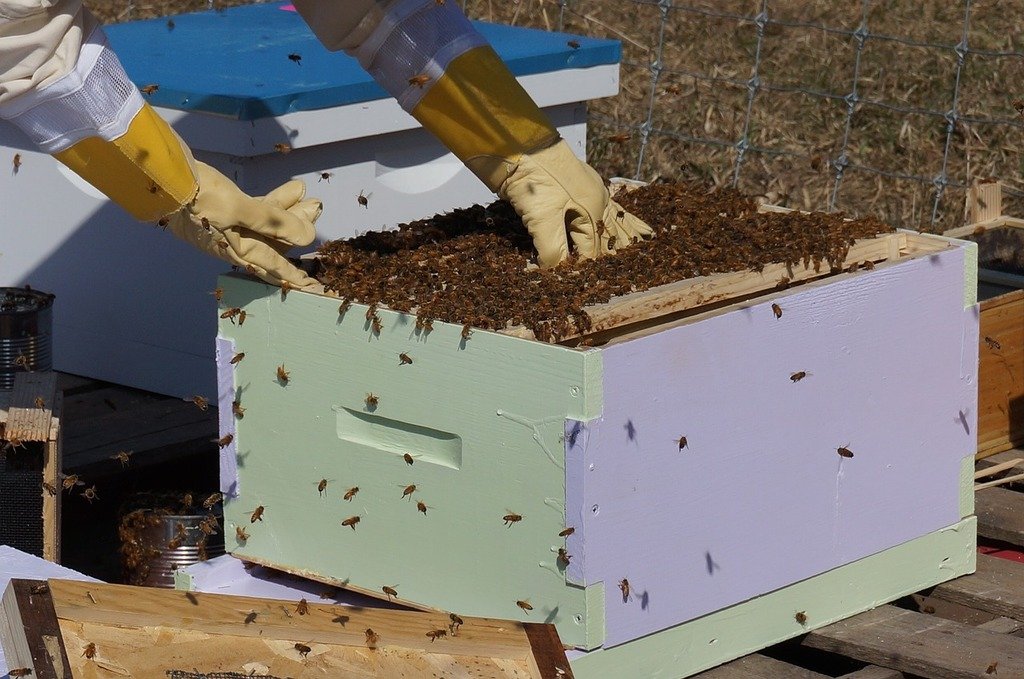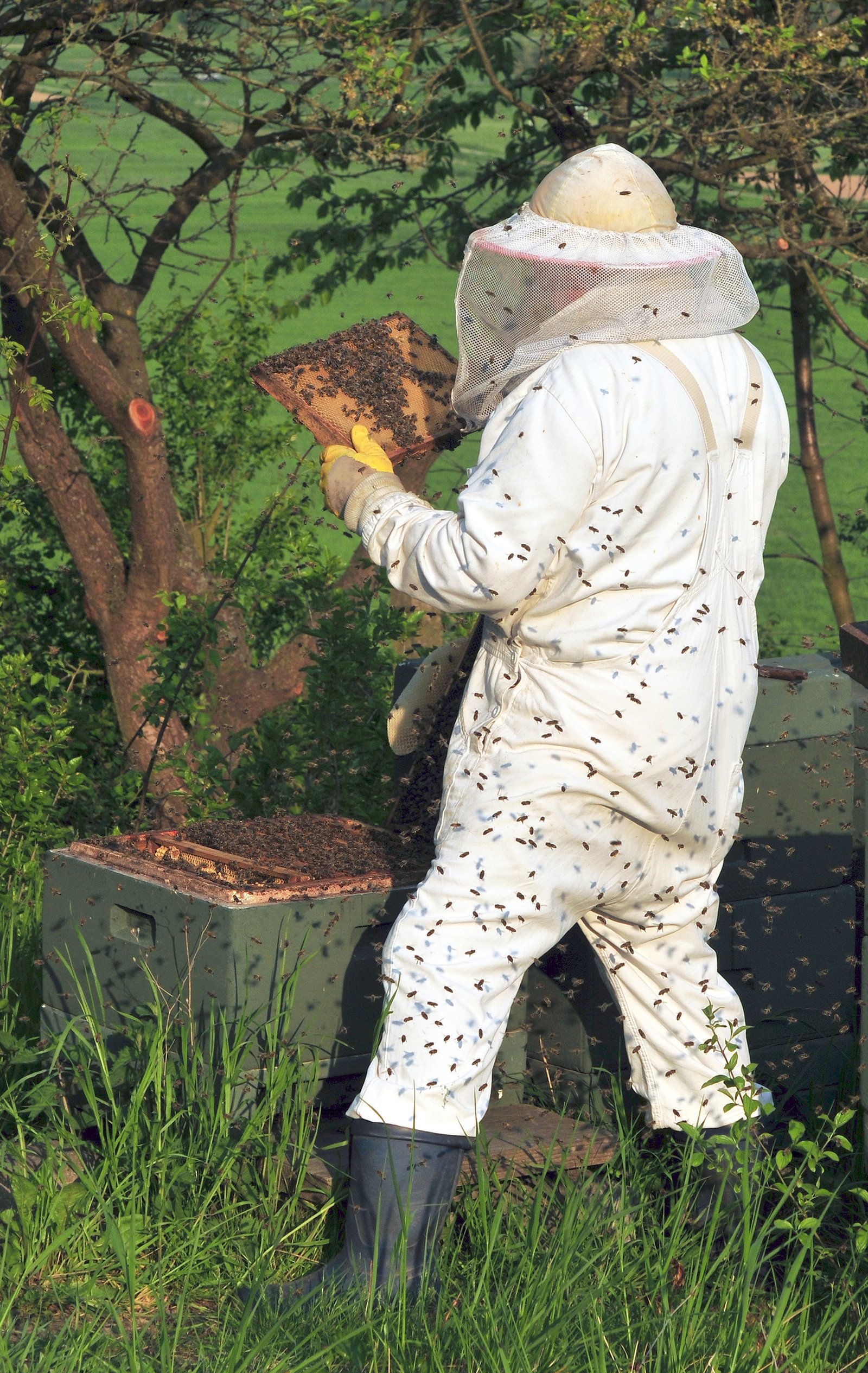Urban beekeeping has been on the rise in recent years, captivating the hearts of both seasoned apiculturists and curious beginners alike. As concrete jungles expand and the buzz of city life grows louder, there is an unexpected but vital hero emerging amidst the chaos – beekeeping clubs. These buzzing communities of passionate apiarists have taken up residence in urban settings, diligently working to protect and preserve the dwindling bee population. Beyond their honeyed treasures, these clubs play a crucial role in fostering environmental awareness, sustainable practices, and a palpable sense of unity within our metropolitan landscapes. Journey with us as we delve into the captivating world of urban beekeeping clubs and uncover the immense impact they have on honeybees, urban ecosystems, and the hearts of urban dwellers.
Table of Contents
- The Importance of Beekeeping Clubs for Urban Biodiversity
- Creating a Supportive Network for Beekeepers in Urban Areas
- Promoting Education and Expertise through Urban Beekeeping Clubs
- Collaborative Efforts for Sustainable Urban Beekeeping
- Encouraging Community Engagement and Awareness through Beekeeping Clubs
- Q&A
- To Conclude

The Importance of Beekeeping Clubs for Urban Biodiversity
Beekeeping clubs play a crucial role in promoting and preserving urban biodiversity. They provide a platform for enthusiastic individuals to connect and share their knowledge and experiences with beekeeping. By joining these clubs, people not only cultivate a deeper understanding of the fascinating world of bees but also contribute to the enhancement and protection of urban ecosystems.
One of the key benefits of beekeeping clubs is the exchange of ideas and best practices among members. Through workshops and meetings, beekeepers can learn various innovative techniques to care for honeybees, ensuring their survival and thriving. These clubs also serve as a medium for educating the public about the vital role pollinators play in our environment, helping to counteract the decline in bee populations. Such awareness-raising initiatives are crucial in promoting the conservation of natural habitats and the cultivation of native plants that support bee populations.
Furthermore, beekeeping clubs provide a supportive network for beekeepers, particularly those living in urban areas where challenges like limited space and environmental pollution can hamper successful beekeeping. Members can get advice, share resources, and collaborate on projects that aim to create bee-friendly green spaces within cities. These clubs also facilitate the establishment of communal beehives, allowing even individuals without the necessary space or resources to engage in beekeeping and contribute to the preservation of urban biodiversity.
Ultimately, the importance of beekeeping clubs cannot be understated when it comes to nurturing and safeguarding urban biodiversity. These clubs play a pivotal role in fostering a sense of community among beekeepers, spreading awareness about the importance of bees, and providing practical support for successful beekeeping in urban environments. So, whether you are an experienced beekeeper or just starting out, joining a beekeeping club could be the next step in your journey toward making a positive impact on the urban ecosystem.

Creating a Supportive Network for Beekeepers in Urban Areas
Beekeeping in urban areas can be both challenging and rewarding. As more and more people take up this important practice, it becomes essential to build a supportive network that can help beekeepers thrive in the urban environment. Here are several ways to create such a network:
- Education and Workshops: Organize regular workshops and educational sessions to share knowledge and best practices with aspiring and experienced beekeepers. These events can cover topics such as hive maintenance, disease prevention, and sustainable honey production.
- Online Forums and Discussion Groups: Develop an online platform or forum for beekeepers to connect, share experiences, and seek advice. This virtual space can facilitate the exchange of information and serve as a hub for troubleshooting common challenges faced in urban beekeeping.
- Mentorship Programs: Establish a mentorship program where experienced beekeepers can guide newcomers in their journey. This program can pair beginners with mentors who offer guidance, support, and advice based on their own practical experiences.
- Collaborative Initiatives: Encourage collaboration among urban beekeepers by fostering partnerships with local organizations, schools, and businesses. These joint efforts can involve establishing community apiaries, creating urban pollinator-friendly gardens, or organizing honey festivals to raise awareness and celebrate the importance of bees.
- Resource Sharing: Develop a centralized resource library containing information, research articles, and tools to support urban beekeeping. This library can be easily accessed online or in physical locations, allowing beekeepers to access valuable resources.
By , we can foster a sense of community, improve knowledge sharing, and ultimately contribute to the well-being and survival of our precious bees.

Promoting Education and Expertise through Urban Beekeeping Clubs
Urban beekeeping clubs are a haven for individuals passionate about promoting education and expertise in the world of bees. Through these clubs, the aim is to create a vibrant community that fosters a love for beekeeping while sharing valuable knowledge and experience.
One of the key benefits of joining an urban beekeeping club is the opportunity to learn from seasoned experts. These clubs often organize workshops and seminars, providing a platform for beekeepers of all levels to enhance their skills. Whether you’re a beginner looking to understand the basics or an experienced beekeeper seeking advanced techniques, these educational sessions offer a wealth of information.
Moreover, urban beekeeping clubs encourage an exchange of ideas, allowing members to collaborate and share their unique experiences. They serve as a hub for like-minded individuals who are passionate about the vital role that bees play in our ecosystem. By joining forces, club members not only expand their knowledge but also contribute to the collective understanding of urban beekeeping.
In conclusion, urban beekeeping clubs are more than just a hobby group; they serve as vital platforms for promoting education and expertise in the captivating world of beekeeping. With their focus on learning, sharing, and community-building, these clubs foster a deeper appreciation for bees while empowering individuals to become knowledgeable and skilled beekeepers themselves.
Collaborative Efforts for Sustainable Urban Beekeeping
Urban beekeeping is thriving, thanks to the collaborative efforts of individuals, organizations, and local communities. By working together, we are creating a sustainable and bee-friendly environment in our cities.
One of the key initiatives in our collaborative efforts is the establishment of rooftop beehives. These hives not only provide a safe haven for bees but also offer a myriad of benefits to urban residents. Rooftop beehives encourage pollination of plants and flowers, enhancing biodiversity and ensuring a healthier ecosystem. The honey produced by these urban bees is pure and locally sourced, supporting small-scale sustainable agriculture.
Another important aspect of our collaborative efforts is education and awareness. Through workshops, seminars, and community events, we aim to educate city dwellers about the vital role bees play in our ecosystem and how they can contribute to their conservation. By engaging with the public, we hope to dispel myths and misconceptions surrounding bees and inspire a sense of responsibility towards their well-being.
- Our include:
- Establishing rooftop beehives to support biodiversity and local agriculture
- Conducting educational workshops and seminars to raise awareness about bees
- Hosting community events to engage and involve city dwellers
Together, we can create urban environments that prioritize sustainability and recognize the importance of bees. By collaborating and working towards a common goal, we are fostering a future where urban beekeeping thrives, and our cities become healthier and more vibrant.
Encouraging Community Engagement and Awareness through Beekeeping Clubs
Beekeeping clubs aren’t just about buzzing bees and honey production. They serve as a vital source of community engagement and awareness, fostering a deeper connection between people and their environment. By joining a beekeeping club, individuals can be part of a collective effort to promote sustainable practices, conserve local ecosystems, and educate others about the importance of bees in our world.
Here are some ways in which beekeeping clubs encourage community engagement and awareness:
- Education: Beekeeping clubs organize workshops, seminars, and educational programs that provide valuable knowledge about the role of bees and their impact on agriculture and biodiversity. These sessions equip members with the skills to become responsible beekeepers and advocates for pollinators.
- Environmental Stewardship: Beekeeping clubs actively promote environmental stewardship by encouraging the use of organic farming methods, reducing pesticide usage, and establishing bee-friendly habitats. Through community initiatives, they inspire individuals to adopt sustainable practices and create a safer environment for bees.
- Community Outreach: Beekeeping clubs engage with the wider community through outreach programs such as public events, school visits, and farmer’s market booths. They raise awareness about the importance of bees, pollination, and the impact of bee decline on food security, sparking conversations and inspiring action.
- Collaboration: By providing a platform for collaboration and knowledge-sharing, beekeeping clubs unite individuals with a shared passion. They join forces with local organizations, businesses, and government bodies to develop and implement initiatives that protect and support wild and domesticated bees.
Beekeeping clubs serve as a hub for people who wish to make a meaningful impact on their local environment and promote community engagement. Together, they work towards a future where bees thrive, and awareness about their critical role in our ecosystem is widespread.
Q&A
Q: What are beekeeping clubs and how do they function in urban environments?
A: Beekeeping clubs are organized groups of people who come together to learn and practice beekeeping techniques. In urban settings, these clubs provide education, support, and resources for beekeepers, helping to promote successful beekeeping in cities.
Q: Why are beekeeping clubs important in urban areas?
A: Beekeeping clubs play a vital role in urban areas by fostering a sense of community among beekeepers. They provide a platform for knowledge sharing, collaboration, and advocating for the importance of bees and pollinators in urban ecosystems.
Q: How do beekeeping clubs contribute to conservation efforts in cities?
A: Beekeeping clubs actively contribute to conservation efforts in cities by promoting the establishment of bee-friendly habitats and advocating for environmentally conscious practices. By educating individuals about the vital role of bees, these clubs inspire people to take action to protect and support local pollinators.
Q: What benefits do beekeeping clubs bring to their members?
A: Beekeeping clubs bring multiple benefits to their members, including the opportunity to learn from experienced beekeepers, access to resources and equipment, and a platform to exchange ideas and experiences. Additionally, being part of a beekeeping club allows members to connect with fellow beekeepers and share their passion for bees.
Q: How do beekeeping clubs engage with the wider community?
A: Beekeeping clubs engage with the wider community through various outreach activities. These may include organizing workshops and seminars to educate the public about the importance of bees, hosting public demonstrations of beekeeping practices, and participating in local events to raise awareness about urban beekeeping.
Q: Can beekeeping clubs help address concerns about declining bee populations?
A: Yes, beekeeping clubs play an essential role in addressing concerns about declining bee populations. By actively promoting sustainable beekeeping practices and advocating for pollinator-friendly landscapes, these clubs contribute to the conservation and protection of bees, ultimately helping to mitigate the decline of bee populations.
Q: Can anyone join a beekeeping club, even without prior beekeeping experience?
A: Yes, most beekeeping clubs welcome individuals with all levels of experience, including those without any prior knowledge of beekeeping. These clubs often offer training programs and mentorship opportunities for beginners to learn the ropes and develop their skills in urban beekeeping.
To Conclude
As our journey through the buzzing world of urban beekeeping comes to a close, we pause to reflect on the invaluable role of beekeeping clubs in these bustling city landscapes. These humble, yet passionate organizations have emerged as beacons of hope, not only for the survival of our cherished honeybees but also for the communal bond they foster within urban communities.
In the midst of concrete jungles, where nature’s chorus is often drowned by the symphony of car horns, beekeeping clubs have arrived like a breath of fresh air. They have transformed vacant rooftops, forgotten gardens, and forgotten spaces into vibrant havens for our precious pollinators. Through their unwavering dedication, these clubs have revived the long-lost harmony between urban dwellers and the natural world that thrives beyond their doorsteps.
With master beekeepers at the helm, these clubs have become much more than just institutions. They are sanctuaries where bee enthusiasts, novice and expert alike, can explore the enigmatic world of honeybees, unearthing their complex social structures, their remarkable communication, and the delicate intricacies of their dance in search of nectar. In this vibrant tapestry of knowledge and shared experiences, urban beekeepers have found solace, camaraderie, and a deep connection to their surrounding landscapes.
Through a web of workshops, demonstrations, and educational programs, beekeeping clubs extend their reach far beyond the confines of their hives. Collaborating with local schools, they provide a platform for eager young minds to engage with the natural world, planting the seeds of passion and environmental stewardship in the hearts of the next generation. With every swarm of knowledge they propagate, these clubs weave a tapestry of appreciation, ensuring that our urban landscapes are forever embraced as fertile grounds for growth and sustainability.
Beyond the immediate benefits of honey production and pollination, urban beekeeping clubs have raised awareness about the urgent need to conserve and protect our honeybees. By sharing their expertise, they empower individuals and businesses to create bee-friendly spaces, encouraging the cultivation of lush urban gardens and abundant wildflower meadows. Together, they nurture the delicate balance between urban development and environmental preservation, firmly stating that nature and progress can coexist harmoniously.
As we bid farewell to these urban beekeeping clubs, these guardians of the hidden world of honeybees, let us not forget the remarkable impact they have had on society. Through their tireless efforts, they have not only revitalized our landscapes but also reignited a sense of wonder and awe towards the smallest yet most crucial inhabitants of our urban jungles. The role of beekeeping clubs in urban settings is not merely a chapter in our story; it is a testament to our resilience, our craftsmanship, and our collective determination to safeguard nature’s greatest treasures – one hive at a time.
As an affiliate, my content may feature links to products I personally use and recommend. By taking action, like subscribing or making a purchase, you’ll be supporting my work and fueling my taco cravings at the same time. Win-win, right?
Want to read more? Check out our Affiliate Disclosure page.